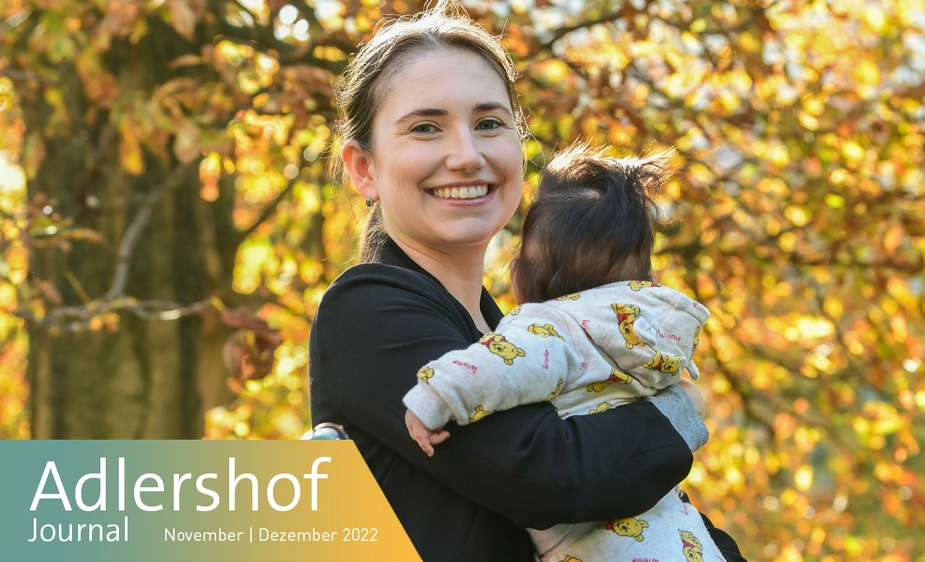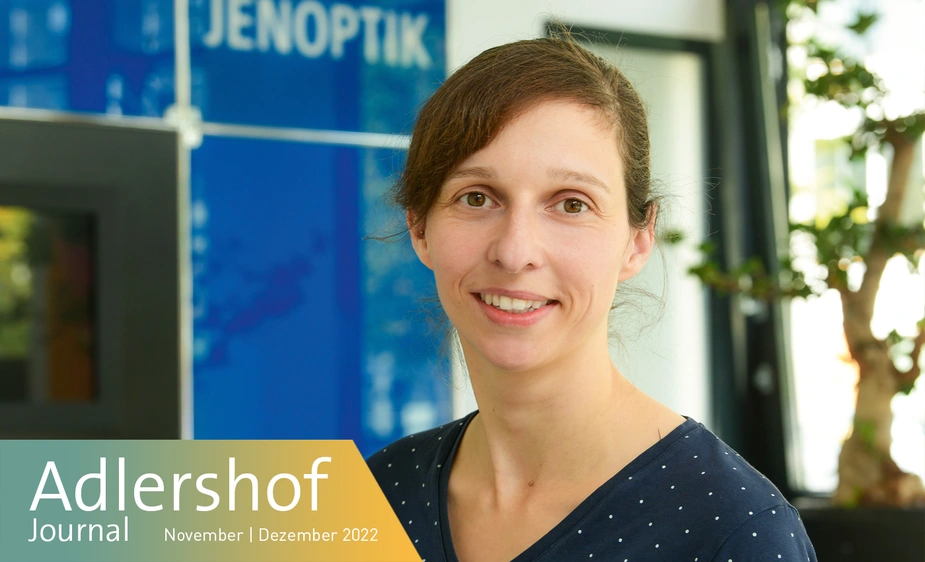“I want to be a role model for other women scientists”
About the career paths of two alumni of the Federal Institute for Materials Research and Testing
Two former chemists of the Federal Institute for Materials Research and Testing (BAM) tell us about their path into STEM fields, how they deal with prejudice, and why they finally ended up in the private sector. A conversation with Madlen Chao, application engineer at SECOPTA analytics GmbH, and Franziska Hanßke, who works as a production engineering expert at JENOPTIK Optical Systems GmbH.
Adlershof Journal: Women are often a minority in typical STEM subjects (science, technology, engineering, mathematics). How did you end up studying chemistry?
Madlen Chao: I had a very committed chemistry teacher in high school, who did experiments with us after school. I for one really wanted to find out why colours change during chemical reactions and which reactions were responsible for them. You have two raw materials with completely different properties, mix them together, and get a product with different properties. This was so exciting to me that I decided to study chemistry.
Franziska Hanßke: I always knew that I wanted to go in this direction. In high school, I did a so-called profile class for maths and science. During my A-levels, I immediately dropped all courses related to languages and history. In the end, I found maths too abstract, and chemistry just came naturally to me. So, I went on to study it.
AJ: Did you experience prejudice towards women studying chemistry?
Franziska Hanßke: In this course, everybody has to hit the lab and prove that they understood theoretically what they are doing in practice. There were certainly a few men who preferred to speak to my internship partner than me. When we started studying, 50% of the course were women. In the end, there were only 30% left. But this had nothing to do with prejudices.
Madlen Chao: My feeling is that nowadays much more attention is being paid to women in science and the quota. Women are protected at the institute, I feel, and don’t have to assert themselves towards men in an exceptional way. Things might look different in the private sector.
AJ: And yet you made the transition to the private sector.
Madlen Chao: At the institute, everything was a bit too theoretical for my taste and everyone tended to work quietly by themselves. For my PhD, I had already chosen a practice-oriented topic together with industry partners. I wanted to finish holding a functioning product in my hands.
Franziska Hanßke: It was clear to me that I wanted out of research after finishing my PhD. The research was great and worked well, but the academic world is basic research and not made for the industry. However, I didn’t want to work for the PhD students after me but wanted ‘something I could touch’. After eight years of studying and a PhD, I just wanted to ‘experience life’.
AJ: Would you describe the change as a leap of faith?
Madlen Chao: I was stepping out of my comfort zone since working in the industry is very different. But, in the end, it was the right decision. Working with clients from very different industry sectors make my job very varied.
Franziska Hanßke: It was a step into the unknown because I didn’t know what to expect.
AJ: What would you call the biggest leap of faith in your life instead?
Madlen Chao: The biggest risk I ever took was probably moving from a small town in Saxony-Anhalt to Berlin. I didn't like Berlin at first – I found it loud and dirty. But, after a few months, I fell in love with our neighbourhood in Charlottenburg.
Franziska Hanßke: Buying a house and having my own horse at 16 were definitely risky undertakings (laughs).
AJ: What wishes and plans do you have for the future?
Franziska Hanßke: I want to develop myself further and maybe take on a leadership role. But I’m very happy where I am right now.
Madlen Chao: I hope that I will find my way back into working after maternity leave. I miss the academic exchange with my colleagues. In the long term, I aspire to take on a leadership role. Moreover, I want to be a role model for other women scientists to take the risk and possibly also find a way into the private sector.
Helen Arnold for Adlershof Journal

